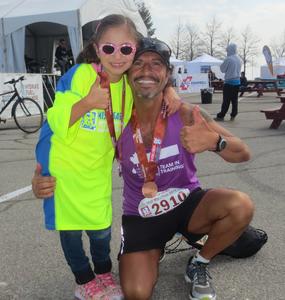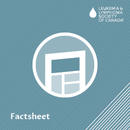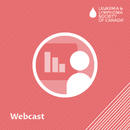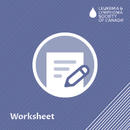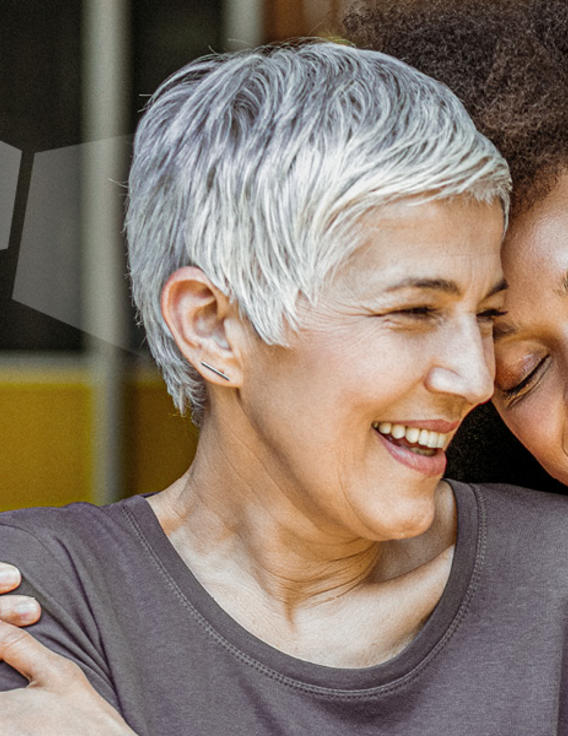Caregiving is often a role you take on with little to no planning in advance.
The responsibilities are wide-ranging and many of them may be new to you. Even so, caring for your loved one is rewarding and learning to be a caregiver can help you provide the best possible care for your loved.
What you should know
Being a caregiver is when you give regular assistance to a loved one with a serious illness.
It is not a job that you get paid for. It is something that you choose to do or must do when your loved one cannot help themselves.
Stephen Hopkins
Stephen Hopkins talks about the emotional rollercoaster of caring for his wife, Shannon, since her diagnosis of acute myeloid leukemia (AML), stem cell transplant, and subsequent recovery.
Image

Scott Leone
As a parent it is very difficult to see her suffer and not know whether she are going to come out of this. However, we were able to find support from the great doctors, nurses, the Light The Night team, and the Leukemia and Lymphoma Society of Canada.
Marie-France
I am so thankful from the bottom of my heart that life, research and science gave my son the chance to be healthy again today. No matter what happens, I know that every day is a gift from life, and we have to live each one to the fullest.
What it means to be a caregiver
Learn what it means to be a caregiver and get strategies to make caring for your loved one easier.
Caring for someone with Acute Leukemia
In this episode we talk to Elizabeth Corkum about what it was like caring for her husband when he was diagnosed with acute myeloid leukemia (AML).
Advocating For Your Loved One
Being a caregiver to a loved one living with an acute leukemia is an important and demanding role and unlike any other. The responsibilities are wide-ranging and many may be new to you. In this education session from our Acute Leukemia Interactive Workshop Donna Thomson, a caregiver, author and activist, discusses practical tips and strategies that you can u…
Supporting Your Loved One Following a Cancer Diagnosis
As a family member or friend who wants to help, it can be hard to know what to say or do. Remember that even when your loved one has finished cancer treatment, they will continue to need your support.
transferred to skip link location: caregiving-for-a-child-with-blood-cancer
Psychosocial care for kids, teens and their parents going through blood cancer
Tziona Lugasi, clinical psychologist in the hemato-oncology department at CHU Sainte-Justine, talks about the impact of cancer on children, teens and their parents, and the transition from pediatric care to adult health care.
Your child has a blood cancer. How are YOU doing?
Caring for your child diagnosed with a blood cancer can feel like your whole world is collapsing – but of course, collapsing is not an option for you. Spending time, as early as possible, on getting help with any mental health concerns is time well spent to strengthen your support of your child.
The words no parent ever wants to hear. “Your child has cancer.”
This video, told from the father's point of view, talks about the strains on himself, his wife, their child with cancer, and their other children.
He describes every hospital visit, every round of treatment as "a rollercoaster of hope and fear."
Mother of a young child with blood cancer: Seeking mental health support
A mother talks about how her world turned upside down when her 7-year-old daughter was diagnosed with a blood cancer. Already juggling work and family, becoming a caregiver on top of it all felt overwhelming to her. This mom's self-care took a back seat as she focused her energy on the care of her sick child.
When Your Child Has Cancer
Learn how to deal with a child that has cancer and their family, teachers and counsellors. How to communicate and coping skills. Included is a worksheet to help with keeping track of appointments.
Chronic anxiety: Mothering a toddler with acute myeloid leukemia
Maura C. had recently returned to work after maternity leave when her daughter, then 15 months old, was diagnosed with acute myeloid leukemia (AML) and immediately admitted to the oncology ward. “This is a nightmare I’m not waking up from,” Maura thought over the 5 months her toddler was in the hospital. She says she and her husband moved from their initial …
When your child is diagnosed with a blood cancer
Michelle Lambert speaks with Veronica Vardy, mother of 5 year old Amelia who is an ALL survivor. Veronica discusses the impact cancer had on her daughter, her family, and what her role as caregiver was like.
Communicating as a Caregiver
Learn how a caregiver should communicate with a loved one about diagnosis i.e. what to say and what not to say. Information on who can make up the healthcare team/specialists and what their roles entail.
Relationship Changes
Learn how caregivers take care of relationship changes, intimacy issues, childcare, communication, medications, young adults and waivers
Talking to Children
Learn how to tell children about a loved one’s diagnosis. Learn what to expect and what to say by age groups.
Caregiving During Treatment
Learn how Caregivers care for a loved one during treatment. How to prepare the home and keep the home safe for mobility of patients, what cleaners to use, how to deal with pets and overall safety.
Managing Side Effects
Learn how caregivers care for their loved one's overall well-being, odours, dental, clothing, side effects, food and lifestyle
Nutrition
Learn how caregivers take care of a loved one's nutritional needs, from dehydration to healthy food choices.
Food Intake and Side Effects Log
In this worksheet learn to keep track of food, beverages, monitor weight and side effects.
Meal Planning
In this worksheet you will find ways to plan meals, track food intake and keep notes.
Grocery List
This worksheet provides a worksheet to list and monitor, foods, grocery list, meals and provides guidelines for healthy eating and keeping track of meals and snacks.
Keep a list of all your medications and supplements
Any prescription or over-the-counter medications, and supplements like vitamins and minerals that your doctor has prescribed should be tracked. Take the list with you whenever you see a new doctor as part of your treatment.
Worksheets to manage cancer care
It can take a lot of effort to stay organized and on top of everything you need to know or do as a caregiver. We’ve created easy-to-follow worksheets that will help to keep you organized and ultimately save you some time.
